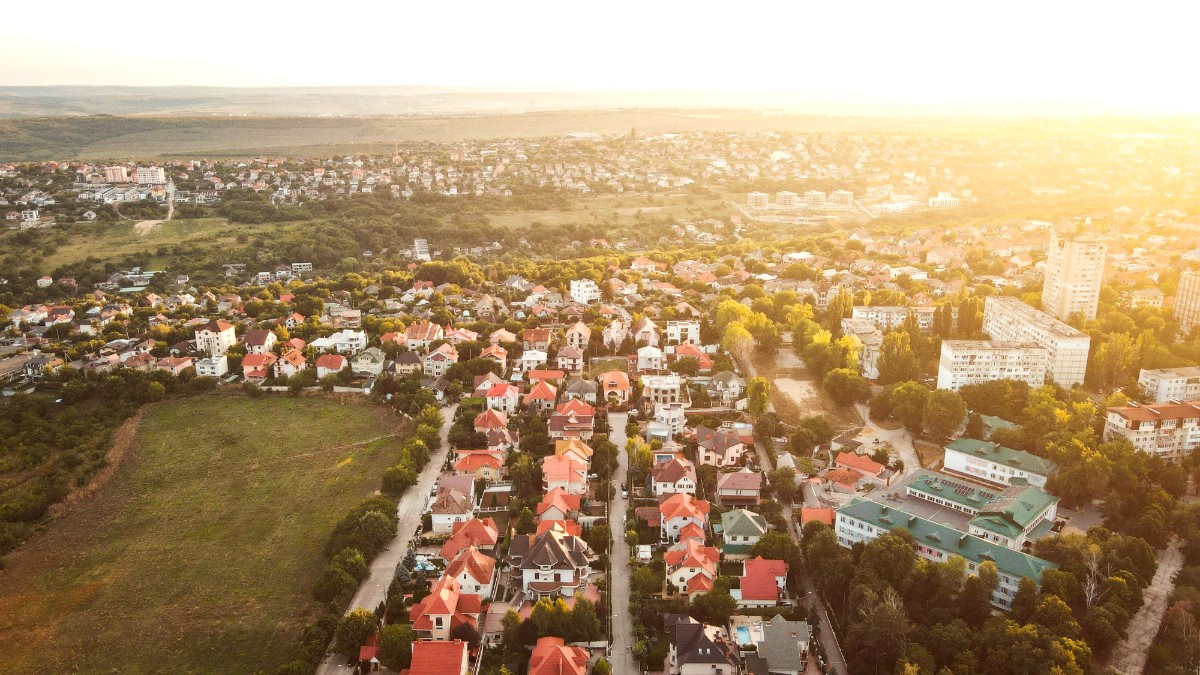
Moldova
Summer (June-August) brings warm to hot conditions. Daytime temperatures typically hover from 25-28°C (77-82°F), with occasional heatwaves reaching beyond 30°C (86°F). Precipitation is moderate, often as short, heavy thunderstorms that clear quickly, leaving humid conditions. Pack lightweight, breathable clothing, and consider a Light rain jacket or Umbrella for sudden downpours.
Autumn (September-November) features mild and pleasant weather, especially in early autumn. Temperatures gradually fall from around 20°C (68°F) in September to approximately 5°C (41°F) in November. Autumn sees less overall precipitation than summer. This period features colorful foliage and the grape harvest season. Layers of clothing are useful as temperatures fluctuate throughout the day.
Planning your Chisinau visit for the shoulder seasons, April-May or September-October, brings pleasant weather, fewer crowds, and better value. These periods are ideal for sightseeing and walking.
For wine tours, September to October (harvest season) and May to June present the most pleasant weather for vineyard visits and tastings. May-September is suitable for outdoor activities like hiking and cycling, ensuring warmer weather and open trails.
June-August
Warm weather, outdoor activities, festivals, long daylight.
More tourists, potentially higher prices, occasional intense heat or thunderstorms.
April-May, Sep-Oct
Pleasant temperatures, fewer crowds, better value, blooming nature.
Unpredictable weather, cooler days, unexpected rain.
November-March
Lowest prices, very few tourists, intimate local life, indoor attractions.
Cold weather, common snow and ice, limited outdoor activities.
Heavy snowfall and freezing rain can occur in winter, potentially disrupting travel or outdoor plans. Travelers should monitor weather forecasts.
Summers can experience short, intense thunderstorms. These usually pass quickly, allowing a return to outdoor activities soon after.
September to October (harvest season) and May to June.
May-June and September-October for comfortable temperatures.
May-September for warmer weather and open trails.
Low season (November-March) for lowest prices and fewer tourists.
High season (June-August) for many events.
Chisinau presents an affordable travel experience, specifically when compared to Western European destinations. Your daily costs will largely match your travel style.
The official currency is the Moldovan Leu (MDL), often symbolized as L. One Leu divides into 100 Bani.
These estimates exclude international flights but encompass accommodation, food, local transport, and some activities.
Prices for various aspects of your trip can vary, but generally offer good value.
Consult a travel health clinic at least 4-6 weeks before your trip. Hepatitis A and B, and Typhoid vaccinations are often advised.
Practice good food hygiene, wash hands frequently, and consume hot, freshly cooked food. Carry Anti-diarrhea medication.
Ticks are present in rural and forested areas. Use Insect repellent with DEET or picaridin. Avoid contact with stray animals (rabies).
Emergency Services: Dial 112 for all emergencies (ambulance, police, fire).
Medical facilities are available in Chisinau. Public hospitals may not match Western standards. Private clinics, like Medpark International Hospital, deliver higher quality services and often have English-speaking staff. Pharmacies are common and well-stocked for over-the-counter medications and prescriptions.
Tap water in Chisinau is generally safe to drink, though it is often heavily chlorinated. Bottled water is widely available and recommended for drinking. A Water filter bottle can give an extra layer of safety, especially if venturing into rural areas.
Always check official government travel advisories for the latest information before your trip, as requirements can change.
Obtain comprehensive Travel insurance before your trip. Verify policy coverage for medical emergencies, evacuation, cancellation, and stolen luggage. Check for Transnistria exclusions.
Keep digital and physical copies of your passport, visa, and insurance policy separate from the originals. Notify your bank of travel dates.
Compile a list of important phone numbers: family, local embassy, bank fraud department. Share this list with someone at home.
Moldova has a relatively low crime rate. However, vigilance regarding petty crime is always a good practice.
Moldova is in a seismically active zone. Earthquakes originating from Romania's Vrancea region can affect Moldova. Most tremors are minor, but stronger ones can occur.
Familiarize yourself with basic earthquake safety procedures ("drop, cover, and hold on").
Can occur during periods of heavy rain or rapid snowmelt, notably in spring.
Summers can be very hot, and winters can be extremely cold with significant snowfall and ice. Dress appropriately.